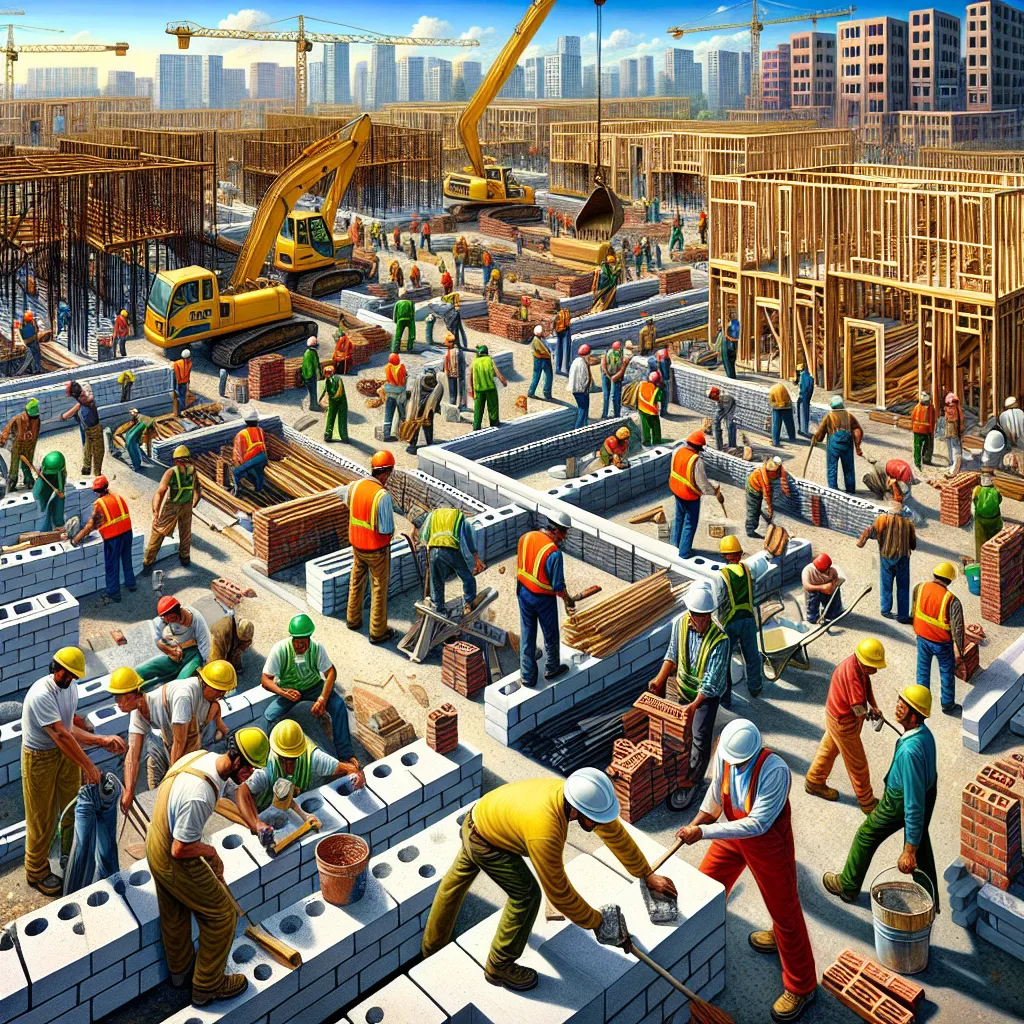From the U.S. to Europe: housing has become families' biggest problem.

The availability of housing that meets the needs of families is becoming more distant by the day. We are facing the "worst construction crisis in Europe in decades" caused by high interest rates and high material prices, further reducing supply. The situation is the same in the US, and this is only exacerbating the problem of access to housing: families who want to buy or build a home are unable to do so because they also face high bank loan costs. And the results are already visible: construction companies have gone bankrupt, supply has shrunk and house sales have slowed.
Many reasons are at the heart of what is already being considered the 'worst crisis in the''building in Europe for decades,' clearly evident in a sharp decline in new building licenses and a slowdown in home purchases, as Bloomberg notes:
- construction costs (materials and labor) have risen significantly over the past two years due to inflation;
- bureaucracy slows down the process (e.g. delays in issuing permits);
- land shortages;
- higher financing costs due to rising interest rates;
- stricter energy efficiency regulations;
- uncertainty in government and monetary policy;
All of these factors together are discouraging house building across Europe, threatening to further deteriorate supply in''coming years. This crisis is already being felt on the other side of the Atlantic, in the U.S., where construction companies are also facing limited access to labor and land, high material prices and financing costs.
This decline in housing construction in Europe and the U.S. is affecting families, further reducing supply and raising prices, so let a family with two stable incomes and a vacant plot of land not be able to build a home, as happened to the David family who wanted to build their home in Düsseldorf, Germany. High interest rates from the European Central Bank and the U.S. Federal Reserve are one of the main obstacles for families looking to buy or build''threatens to further reduce housing supply in Europe. In the UK, 45,000 construction companies have closed in the last five years. And in Sweden, 1,145 companies in the construction industry went bankrupt between January and October this year, the same source cites.
In the U.S., some see the dwindling housing supply as an opportunity.
How to increase housing supply in Europe and the U.S.?
The lack of housing supply in the market is a problem that spans the Atlantic, especially when it comes to affordable housing for families. However, today''Building affordable housing is becoming unaffordable for many developers who are seeing their profits squeezed, although there are incentives in various countries to do so.
With private investors reluctant to invest in this market, several European governments, including the Portuguese government, have promised to build affordable housing to soften prices and increase supply. However, government policies in Europe are still insufficient to meet demand, Bloomberg points out. This is clearly evident in Germany, Sweden, the U.K. and Portugal, for example. There are also incentives in Europe to speed up construction projects, as in the U.K., Germany and Portugal, where permitting procedures are being simplified. But these''s policy changes have the flip side of the coin: They create uncertainty, leaving many construction companies and developers waiting and pausing housing projects to see how things will work out and what new lines of financing or other support they might receive, Bloomberg also notes.
In the U.S., the Biden administration has developed demand-side policies aimed at improving access to housing in the country, lowering insurance rates on loans and supporting payments for first-time buyers. However, some believe that these measures only increase supply-side demand pressures. Alternatively, incentives could be offered to owners to sell their homes, for example by''tax increases or temporary tax exemptions on capital gains.
Comment
Popular Posts
Popular Offers




Subscribe to the newsletter from Hatamatata.com!
Subscribe to the newsletter from Hatamatata.com!
I agree to the processing of personal data and confidentiality rules of Hatamatata











